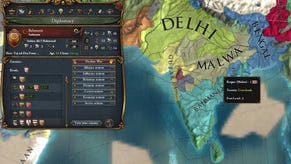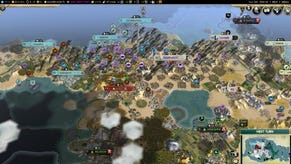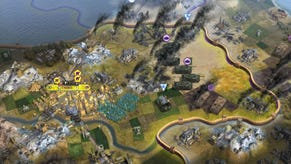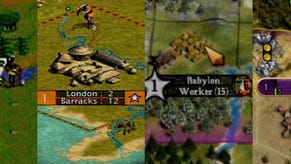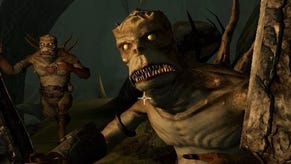Civilization V's Jon Shafer and Dennis Shirk
Firaxis' Great People.
Part of it is the technological aspect. We wanted Civ V to look really good. Hexes make the maps look more organic, like I was saying yesterday. But hexes are more difficult to work with. Pretty much anyone can divide a sheet of paper up into a grid, but do the same with hexes.
In the past, with the type of games we were making, squares served the design. Sid's been working on games like Civ a long time, and squares made sense. But with the switch to the new kind of combat, that made the jump to hexes easier for us, because it actually helped the game, makes the movement of units more interesting.
It comes up a lot. But it's in combination with the new one-unit-per-tile system that makes the new system really work, and it's that combination that's the reason we've only just introduced hexes.
We've also got a brand new terrain system that's been built from the ground up for Civ V. It's not easy to make a system that can build a truly random map that always looks good, it's something that hexes have helped us with.
They can shoot over things, if they're up a hill. The range is the same, but if they're in a jungle, all they can see is the jungle. But if they're on a hill and there's a forest between them and the enemy, they'll be able to shoot over it.
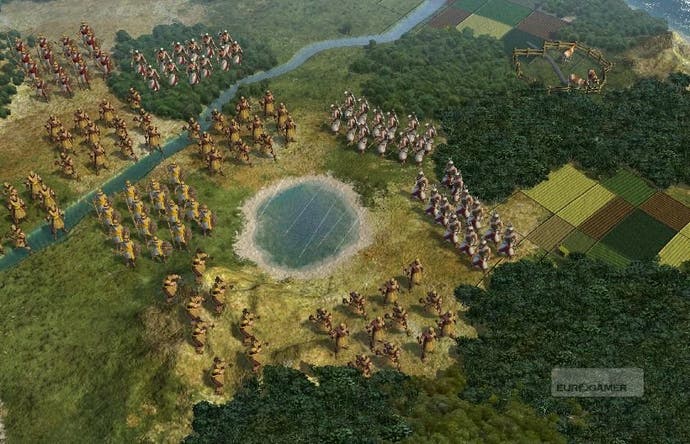
Have you played Panzer General? It's kind of a similar situation. You have ground units, and air units. You also have hexes and one-unit-per-tile. We've got three layers of units - civilian units can stack with military together. You can have a worker unit and a warrior unit on the same tile, but not two of either.
Units take longer to build now, they're more expensive, and they're a lot more important to you, because you need to keep them alive. You can't just spam tons and tons of units. You could before, but we wanted to make it more interesting. So you have to make more decisions, advance in technology faster, and work towards building stronger units.
Yes. That's something we really wanted to do, to foster that policy. War is fun, and blowing stuff up is awesome, but Civilization is about building. War is still a part that equation, obviously, but other options make more sense now.
We wanted to add depth to the combat system, but war isn't more advantageous as a tactic. If you like war, there's more depth for you there.
We're trying to equalise as much as possible. It speaks to different people's playstyles. Some people only play it as a war game, some people only conquer. On the other extreme, you've got people who never fight at all. We need to cater to both these groups, and we need to balance those approaches.
And in making the war game more interesting, it's more tempting to get involved with that side of things. Really, you can play how you like.
We spend a lot of time on the leaders and their AIs. And they'll call you out - if you take the City States around you, they'll call you a bloodthirsty warmonger. We've spent a lot of time on the visuals, as you've seen, but we always want their actions and reactions to reflect an important aspect of the game.
It's great, it really is. A lot of it goes back to my time in the mod community. You earn a lot of respect for the art guys - I've got no skills in that department, my stick men are embarrassing. The amount of time being spent in these departments is what distinguishes a really good modder who makes a fun scenario, and somebody who has a full time.

